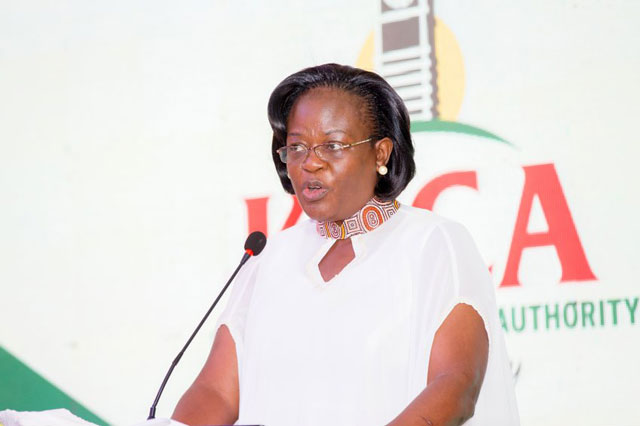
Kampala, Uganda | THE INDEPENDENT | Kampala Capital City Authority is losing over Shillings 14 billion in property rates from premises being used by their owners. According to the property rates evaluation exercise conducted between 2016 and 2019, Makindye division has the highest property rate tax potential from owner occupied residential buildings totalling to Shillings 7.095 billion.
This was followed by Lubaga with potential of Shillings 2.980 billion, Kawempe with Shillings 1.782 billion, Nakawa with Shillings 1. 275 billion and Central division with about Shillings 946. 155 million. KCCA is mandated to conduct property their area of jurisdiction and levy property rate tax. However, But residential owner-occupied houses are exempted from the tax.
Sam Serunkuma, the Director Revenue Collection in KCCA, says exempting owner occupied houses costs the Authority a lot of revenue. He says because the law exempts owner occupied houses, even those who could pay can’t do so, which denies the authority revenue.
Serunkuma says such property should pay the tax because their owners also benefit from the services offered by the Authority just like commercial buildings owners.
The 2005 local Government Act mandates urban councils to set property rates not exceeding 12 per cent of the ratable value. The ratable value of a property is 76 per cent of the annual revenue that a building owner collects from tenants. The remaining 24 per cent is left for the owner to cater for utility bills and renovation.
KCCA charges 6 percent of the ratable value. Serunkuma says when taxing owner-occupied property, they can levy the tax depending on the status of the area. For instance, low income area can be put at a zero percent tax rate and middle-income area 2%. Serunkuma says this will ensure equity in the tax system and improve the tax base of the authority.
Adrian Ddungu, a tax consultant says local governments cannot over look property rates because it is a major source of revenue. In fact, for KCCA, it is the highest single source or revenue contributing over 40 percent of the local collections.
He agrees that since these properties enjoy services offered by KCCA just like the commercial building, they should pay the tax. Ddungu , however, says that owner occupied houses should be charged lower rates compared to those generating rental income.
Ddungu however says that KCCA should streamline the tax collection process to improve compliance. According to the recent revaluation, KCCA has a potential of collecting Shillings 77.7 billion but since 2010, it has only collected a maximum of Shillings 32 billion.
He further asks KCCA to work with Uganda Revenue Authority- URA to streamline tax levied on buildings to avoid double taxation, which he says affects compliance. While KCCA collects property rate tax, URA collects rental tax on the same property.
********
URN
 The Independent Uganda: You get the Truth we Pay the Price
The Independent Uganda: You get the Truth we Pay the Price




KCCA should simply up its act of revenue collection from those businesses that earn income from the business. Taxing houses occupied by owners is very unethical because the owners of buildings that occupy them pay for all services that KCCA is talking about. I challenge them to name any service that is freely enjoyed by such house owners. Secondly, taxing a person that earns no income (occupying own house is not an income generator) is unworkable and unsustainable because there will be no income earned from which to pay the tax. It is plainly simple. H. E The President, Mr Yoweri Kaguta Museveni in his usual wisdom saw it fit to champion this exemption, which eventually became law. I am sure KCCA is able to collect more revenue without wandering into this unsustainable area. KCCA needs to increase on its organisation by embracing quality management systems, and apply ICT in all activities so as to curtail corruption of its staff that either connive with property owners to omit their properties, or simply undervalue them.